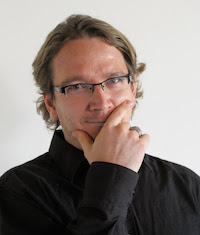Two incongruous beliefs shaped me
Even though I may identify as a Christian, many of my attitudes, thoughts, words, and actions reveal that I often function as an atheist. My desires for social status, material wealth, and sexual pleasure often more resemble a secular lifestyle that opposes what God calls me to.
Here’s what I mean.
Theistic beginnings
In early childhood, my parents and church taught me that the power behind the universe was an all-powerful, good, and caring God. What they told me seemed true, and besides, I wanted to belong and fit in socially, so I believed them.
At that time, it was in my best interest to please God, my parents, and my Christian community, so I tried to make my life look more acceptable to social Christian norms.
I strove to be kind, gentle, honest, self-controlled, and generous. I felt like I was starting to understand how to live my life, and I felt good about myself. Little did I know, my belief in God remained unchallenged.
The rising influence of atheism and secular culture
Starting in junior high, and increasingly so as I progressed towards university, I realized that the majority of my peers and teachers did not believe that God was the ultimate power, or at least, they didn’t seem to live like it.
Not only did they not believe in God, but my peers became progressively vocal about their interest in the academics of atheism and the allure of secular culture. My friends were increasingly consuming sensualized media and experimenting with sex, mischief, swearing, shoplifting, and getting drunk or high.
Believing in God and wanting to live for him started to develop some uncomfortable social tensions for me within my social group of secular peers at school. I couldn’t fit into the inner circle of cool guys because my conscience wouldn’t allow me to engage in what they were doing. I was less relatable to them. I was more alone and alienated.
Intellectual bullying
Inside the classroom, atheistic teaching became more overt. I was fearful of being embarrassed, so I found it in my best interest not to voice my disagreement. I didn’t question or push back. I was intimidated and unaccustomed to hearing authority figures tell me that the power behind the universe was an impersonal force.
Secular culture seemed increasingly dominant and I often felt marginalized, like an outsider and an idiot among those with a brain. My faith in God felt under suspicion and demeaned.
A tug of war for my allegiance
Sadly, during my early teens, my thinking became increasingly fluent in atheistic teachings and, subsequently, my actions reflected a secular lifestyle more and more. I began to value and be consumed by all that was vain and temporal.
I started to believe it was up to me to define myself and make something of myself by what I looked like, what I could accomplish, what people said about me, or what I could purchase. It was all about me in the here and now. Grabbing all the social attention, material wealth, and thrilling experiences I could. Making a name for myself by showing off my competencies.
As a result, I grew super self-conscious about my appearance. I wanted to feel attractive to the girls I liked, and strong and tough among the guys. I wanted to wear name brand fashion to show my sense of worth. I wanted to dominate at academics and sports. Failing or losing was for failures and losers. I wanted to be neither. I was always fearful of what my peers thought of me.
It was in my early teens that I also started to succumb to the powerful temptations of secular media. I started to believe advertising. I craved the latest shiny advertised things to feel satisfied, to be a somebody. I was always prioritizing my concern for making money and my next purchase, becoming a consumer first, thinking that the accumulation of things would make me happy.
Due to my own sinful nature I also developed an increasing appetite for sensual media. At first it was images I saw in advertising, but soon it became an addiction to pornography.
I was learning that the conflict between atheism and theism, and their resulting conflicting lifestyles, wasn’t only an intellectual debate found in lecture halls at university. This battle was being fought within my own sense of personhood. I was always being torn between two explanations for my existence, and therefore caught between two opposing purposes for my life in the vast universe.
Every day I was left asking myself: “Which one will I believe in and live for today? Which belief system and lifestyle will I surrender to in this moment?” I stood in the middle of a cultural and cosmic tug of war—each side vying for my allegiance. And with an increasing dominance of atheism in my social circles, you can guess which one was increasingly gaining my allegiance.
A soul daisy
Tim Keller has articulated my fluctuating attraction between theism and atheism so well. I often feel like a soul daisy when it comes to my belief in God: “I believe, I don’t believe… I believe… I don’t believe” When I think about my thoughts, attitudes, words, and actions, can I really call myself a pure theist? Can I really call myself a pure atheist?
No, not with integrity.
As I pay attention to the way I live, it reveals that I am more on a continuum, vacillating between theism and atheism, rather than rigidly adhering to one.
For as much belief I have in God, there is a good measure of disbelief. In any given moment I am fickle about which one will have my allegiance. Even though I confess my belief in a God, I often live as though there isn’t one.
Atheism and theism have both taken deep root in me. Both desire my nurturing, fuelled by what is in my best interests or the pressure to please people around me.
What is the end game?
But I have to ask myself, where has my increasing allegiance to atheism got me? Lately, I feel tired, disillusioned, and let down by my pursuit of possessions, pleasures, and accolades, all things for which I have grabbed in this material world.
My material possessions seem to always let me down. They don’t live up to the hype. They break, wear out, fade, or go out of style so quickly. My addiction to increasingly sensualized media leaves me less and less fulfilled. My tolerance only yields diminishing returns. My accomplishments never fully satisfy or endure; they are easily forgotten. I am always craving more and getting less satisfied.
As my body grows older and weaker, due in large part to my worldly pursuits, I think atheism’s appeal is losing its power and influence over me. It has shown itself a fraud. All that it promised me in this world, if I would indulge myself, has only left me disillusioned, empty, and lost.
I still haven’t found anything that has enduring satisfaction in this material world. Although I still have my moments where I slip into secular thinking and lifestyle, I find myself rebounding more quickly to a much more substantial belief in God.
And so I find myself returning to the simplicity of my faith when I was a young child.
Developing a taste for good bananas
They say you only know a bad banana because you can compare it with what you know of a good banana. I now see how atheism itself gets its definition entirely and solely from its opposition to theism. It takes everything that theism is and defines itself in relation to opposing it.
Once I’ve tasted a good banana, I am able discern the ones that are bad. Having started out my life living in light of our human narrative from a Christian perspective, and having subsequently lived much of my life with an increasingly atheistic and secular mindset, I can see where I have eaten my share of bad bananas.
But by the grace of God through life experience, my palate is developing a stronger taste for good bananas.
How about your palate?
"*" indicates required fields
Share this!
About the Author





